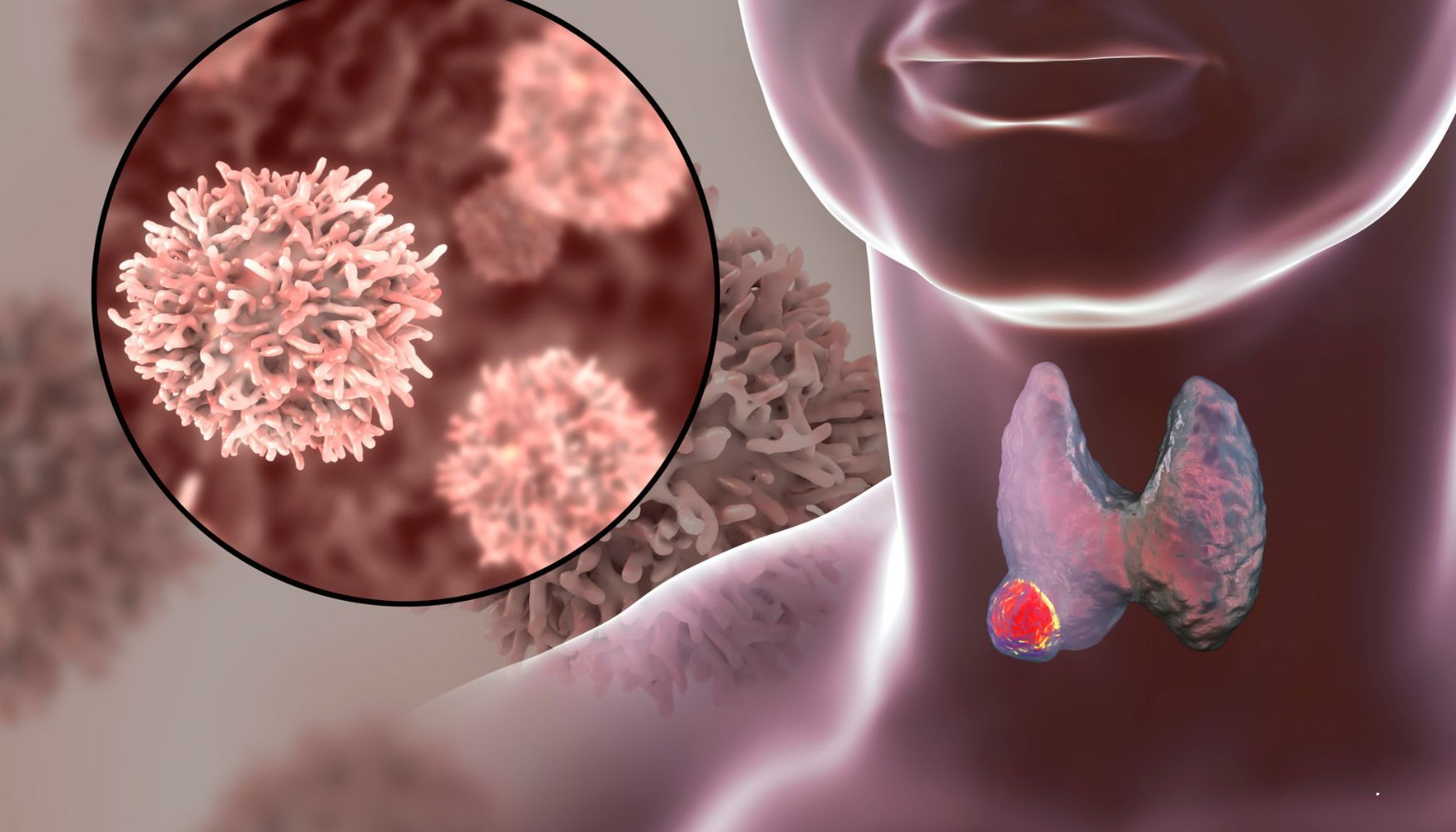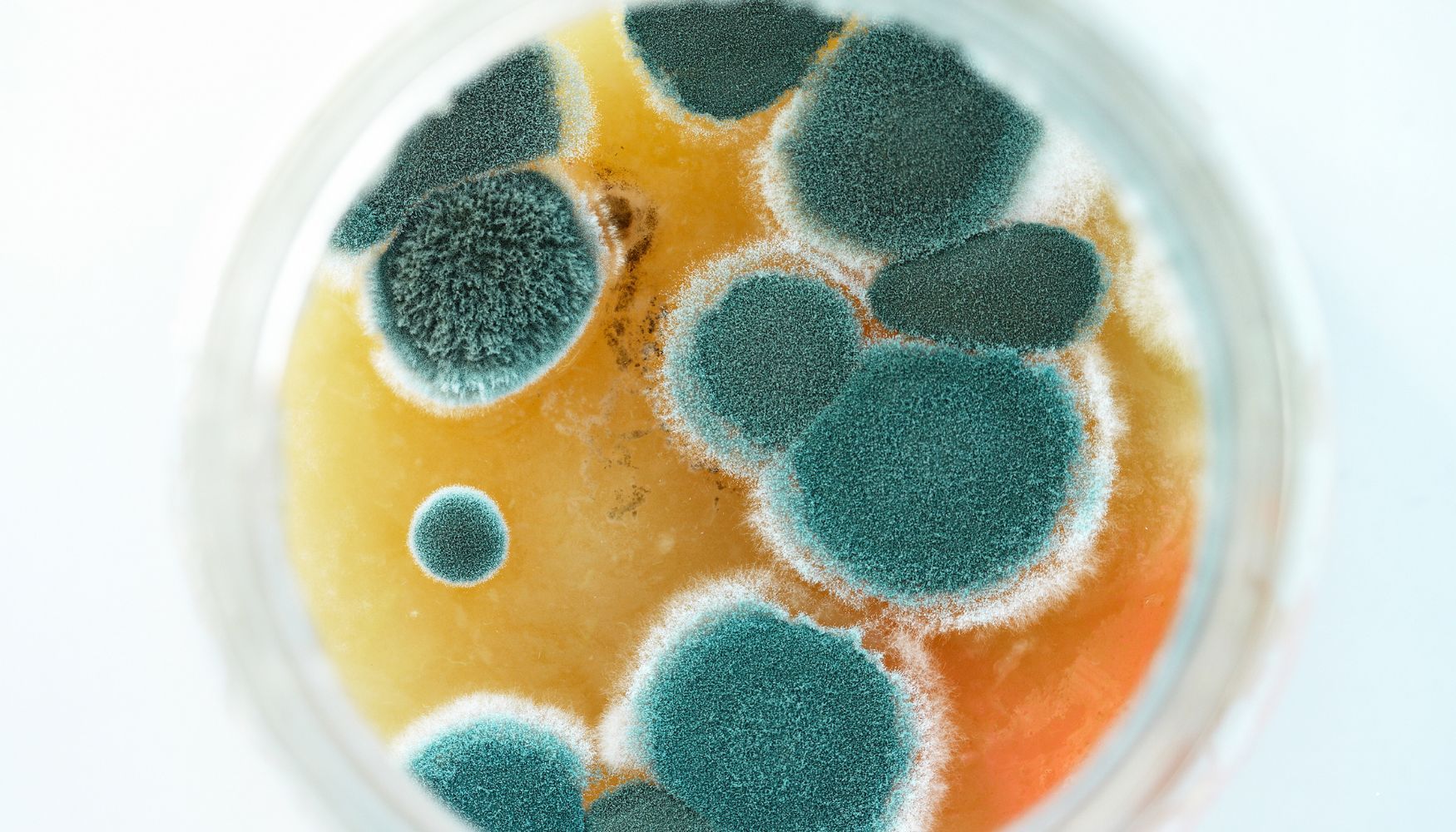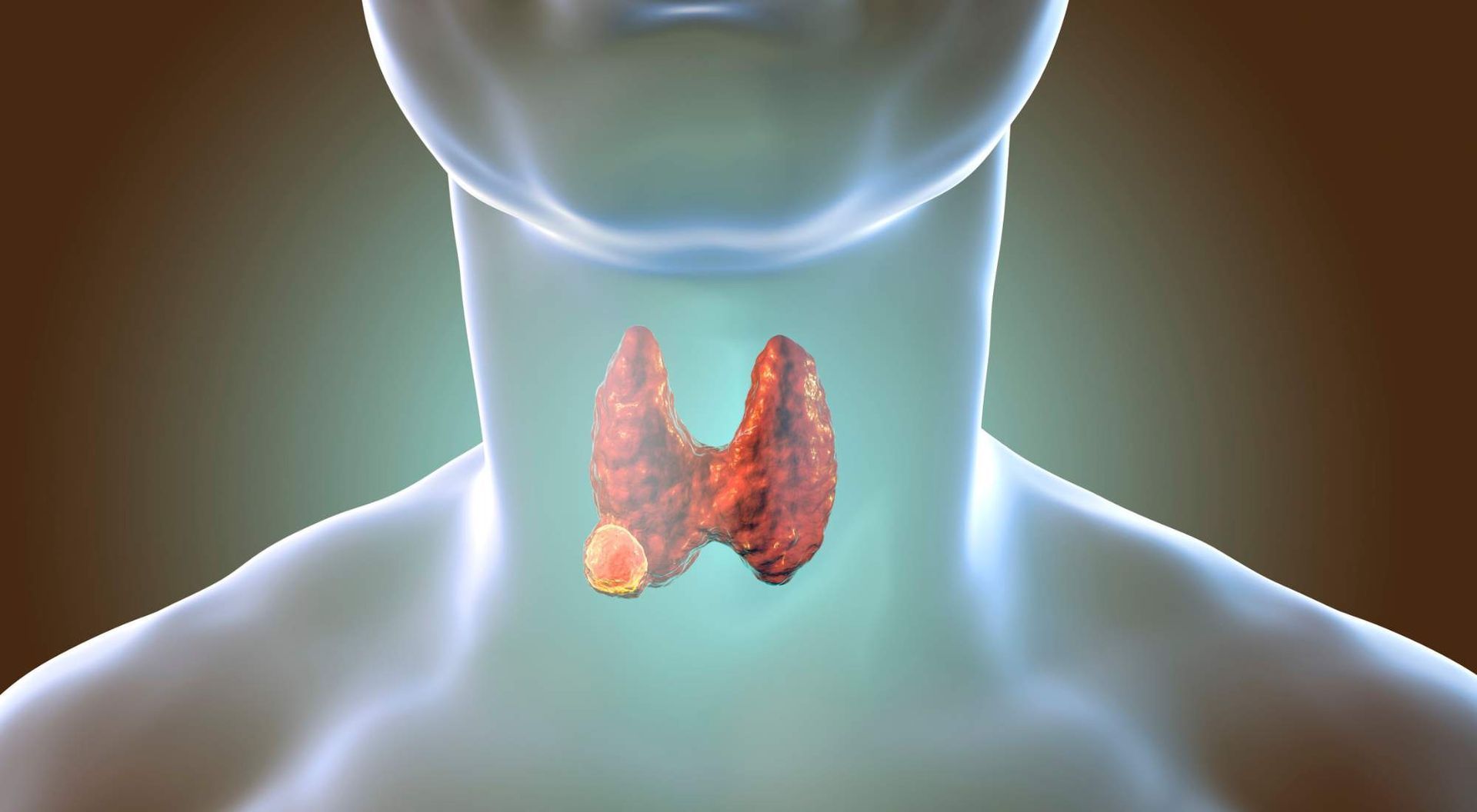Can Mold Cause Thyroid Issues? How Mold Exposure May Affect the Thyroid
"The content below is not intended to be a substitute for professional medical advice, diagnosis, or treatment. Always seek the advice of your physician or other qualified health provider with any questions you may have regarding a medical condition."
Our bodies and how they interact with the world around us can be a mysterious, and thus a frustrating, thing — especially when we need answers. The thyroid is an unseen but extremely influential organ. Mold often remains unseen (pending thorough inspection) and can have varied deleterious effects on all body functions. All you see are distressing symptoms that you can’t explain but must have some explicable cause.
Doctors, researchers, and others have taken strides to unravel the mystery of mold’s influence on the thyroid. Learning about what they have discovered can help you protect your thyroid and eliminate unpleasant symptoms.
HealthierU attempts here to elucidate the ways mold can affect thyroid health. We offer advice about detecting the signs of mold exposure so you can take action to remedy it and restore your thyroid function.
Table of Contents
Can Mold Exposure Cause Thyroid Issues?
Yes, evidence indicates that mold exposure can increase the risk of autoimmune diseases, including those that affect the thyroid.
HealthierU regularly treats individuals with autoimmune diseases, thyroid issues, and other conditions and has experience with getting to the root of what is exacerbating these problems. Contact us today to schedule a free consultation.
3 Ways Mold Exposure May Be Related to Thyroid Health
Mold can cause the immune system to become dysregulated, leading to what is known as chronic inflammatory response syndrome (CIRS), a condition affecting every body system and causing a variety of symptoms. In this condition, the immune system produces a surplus of cytokines that begin to attack the body’s own tissues.
This, and other effects of CIRS, can lead to thyroid disease by way of the following mechanisms.
Low MSH and Leaky Gut
When the intestines produce low levels of melanocyte stimulating hormone (MSH), as during exposure to mold, the tight junctions designed to contain bacteria and toxins are widened, allowing these pathogenic materials to leak into the bloodstream.
This condition is known as leaky gut and can lead to autoimmune diseases, such as Hashimoto’s or Graves, which attack the thyroid. In addition, autoimmune thyroid diseases may lead to reduced absorption of nutrients that are critical for thyroid function.
Mold and underlying autoimmune conditions are not the only causes of leaky gut. Other contributing factors include chronic stress, the modern diet high in sugar and saturated fats, and alcohol consumption.
This means that, besides identifying and eliminating the source of the mold in your vicinity, there are other things you can do to retighten the junctions between intestinal cells and strengthen the integrity of your gut. Diet and lifestyle changes such as the following are critical to supporting your intestinal lining:
- Ensure you have enough fiber in your diet.
- Consume prebiotics and probiotics.
- Commit to a regular exercise program.
- Limit processed foods and high-sugar or high-fat foods. Avoid food additives.
HealthierU is a great resource and guide for making the right modifications to your lifestyle. Contact us today for support as you seek to recover from leaky gut.
Increased Production of TGF Beta-1
Transforming Growth Factor (TGF) Beta-1 is a cytokine with multiple positive functions, including the regulation of cell growth, wound healing, and inflammation.
When, however, mold induces overproduction of this otherwise beneficial cytokine, TGF Beta-1 disrupts the production of T regulatory cells. The main responsibility of these cells is to prevent the immune system from overreacting to pathogens or from treating self-cells as pathogens.
When T regulatory cells are not produced in adequate amounts, the result is an elevated immune response that doesn’t distinguish well between normal body tissues and disease-causing organisms. Thus, autoimmunity results.
Autoimmunity generally does not develop from one cause. The mechanisms that lead to autoimmunity are multifactorial, involving genetics, affliction with certain illnesses, and exposure to environmental toxins, of which mold is one.
Our industrial economy thrives by processes that make many toxins ubiquitous but invisible, making identifying and avoiding them difficult. But if we educate ourselves about toxins in our food, air, and hygiene products, we can begin to take steps to avoid them and minimize our exposure to preserve our immune system’s normal function.
Increased Sensitivity of the Immune System
Mold releases mycotoxins with the capability of crossing the blood-brain barrier and causing neurological dysfunction by way of inflammation and brain cell death.
Exposure to
mycotoxins not only encourages proliferation of pathogens, but also leads concurrently to the suppression of some immune cells while causing a heightened response from others. When the immune system is put under such duress, autoimmunity follows close on its heels.
5 Thyroid-Related Conditions As a Cause of Mold Exposure Backed By Evidence
The following disorders illustrate specific ways in which
mold can cause thyroid issues.
#1: Aspergillus Thyroiditis
Fungal infection of the thyroid is usually caused by the Aspergillus fungus and may be identified by the following symptoms:
- Fever
- Pain in the front of the neck
- Thyroid enlargement, sometimes accompanied by difficulty speaking or swallowing
While many strains of this fungus are harmless, some can cause serious illness, particularly in immunocompromised patients. This is a very
dangerous condition that sometimes necessitates thyroidectomy, but treatment is often unsuccessful.
#2: Non-Thyroidal Illness Syndrome (NTIS)
Patients with NTIS exhibit thyroid hormone levels expected of an ailing person (that is high levels of reverse T3, which is the inactive byproduct of T4 deiodination, and low levels of active T3). This is the case whether the person is suffering from a cold or flu or from chronic mold exposure.
Generally this condition is
resolved by eliminating mold exposure and treating it with a combination of different thyroid hormones, nutritional supplements, and dietary changes.
#3: Endocrine Disease
Endocrine glands, distributed throughout the body, produce hormones that regulate countless biological processes in the body. Even small fluctuations in hormone concentration can have major effects.
If such fluctuations are not the result of other underlying illness or deficiency, they are probably caused by endocrine disruptors, which are substances (natural or man-made) that interfere with normal hormone function.
Endocrine disruptors affect the body by the following means:
- Mimicking natural hormone structure and binding to/activating receptors designed for the hormone itself
- Making hormone receptors more or less responsive to normal hormonal signals
- Disrupting hormone production
- Causing confusion between the endocrine and neurological systems
Mold is a major endocrine disruptor — others include pesticides, phthalates, and flame retardants — and the thyroid is very vulnerable to its effects. Long-term exposure to mold may lead to inadequate or excessive production of thyroid hormones, slowing of the thyroid, or deactivation of thyroid hormone already produced.
#4: Autoimmune Thyroid Disease (AITD)
Continual exposure to mycotoxins leaves your immune system “on” all the time in an attempt to fight them off. This attempt to protect your body, however, leads to prolonged inflammation, which causes cell and tissue-damaging oxidative stress that leads to further hormonal imbalance.
Autoimmunity may develop as a result of long-term mold exposure, as described above. In summary, mold stresses the immune system as it seeks to combat the threat, making it extra sensitive even to normal body tissues, such as the thyroid.
Hashimoto’s and Graves’ Disease are autoimmune conditions leading to hypothyroidism and hyperthyroidism, respectively, and are diagnosed when thyroid antibodies are found in the blood. These may result because of mold exposure, but even if they developed without mold’s influence, they make patients extra vulnerable to developing more severe symptoms when exposed to mold.
#5: Hypothyroidism
Hypothyroidism is not always caused by an autoimmune disease, but it can still be a result of mold exposure. Low thyroid hormone that presents with no thyroid antibodies indicates non-Hashimoto’s hypothyroidism.
Symptoms of Mold Toxicity and How They Might Impact Your Thyroid Health
Symptoms of mold toxicity may be mistaken for or masked by other health issues. They include:
- Common allergy symptoms
- Intense fatigue
- Cognitive changes
- Digestive difficulties
- Hormone imbalance symptoms, like skin rashes, hair loss, and weight loss/gain
- Tinnitus
- Unexplained pain
Fatigue, brain fog, constipation, hair loss, changes in weight, and muscle pain are also signs of thyroid problems. Treating your thyroid and being aware of mold in your environment could be the double-edged sword you need to combat these symptoms.
Mold toxicity can exacerbate autoimmune symptoms in people who already have autoimmune thyroiditis or other thyroid-related disease, worsening the overall inflammatory response against the thyroid.
An adverse reaction to mold can trigger Hashimoto’s disease, asthma, and other autoimmune conditions that can lead to thyroid dysfunction even in people with a normally functioning thyroid.
If you are experiencing any of these symptoms, please don’t hesitate to reach out to HealthierU to find support as your search for answers to what can seem an enigmatic problem.
Let HealthierU Help You Improve Your Thyroid Health While Facing Mold Exposure
HealthierU founder Dr. Donna Sergi is a holistic nutritionist and chiropractor who specializes in women’s health and has served the Brooklyn area for over 25 years. Her goal is to help patients develop a lifestyle routine of nourishing the body rather than adding to its load of toxic exposure.
Dr. Sergi’s strategy is understanding the body’s biological mechanisms and supporting them by:
- Adhering to a wholesome diet
- Avoiding or limiting consumption of/exposure to toxic substances
- Committing to lifestyle modifications that improve overall well-being
Whatever health conditions you may be dealing with, HealthierU can be your guide to greater wellness. Our experience has allowed us to assist patients who struggle with any one or combination of the following ailments, among others:
- Thyroid dysfunction, including hypothyroidism and hyperthyroidism
- Digestive issues, including constipation
- Menopause
- Weight problems
- Hair loss
- Acne
- Acid reflux
- Hot flashes
- Hormonal imbalances, including polycystic ovarian syndrome and diabetes
Chiropractic care goes hand in hand with holistic nutrition, as the goal of both is to encourage the body to heal itself. Dr. Sergi understands this connection deeply, utilizing practices that complement each other to the benefit of her clients.
If you are looking for safe, natural care that you know will have no harmful side effects, consult HealthierU today to schedule a free consultation and learn more about how Dr. Sergi can offer you a customized map to greater wellness.






